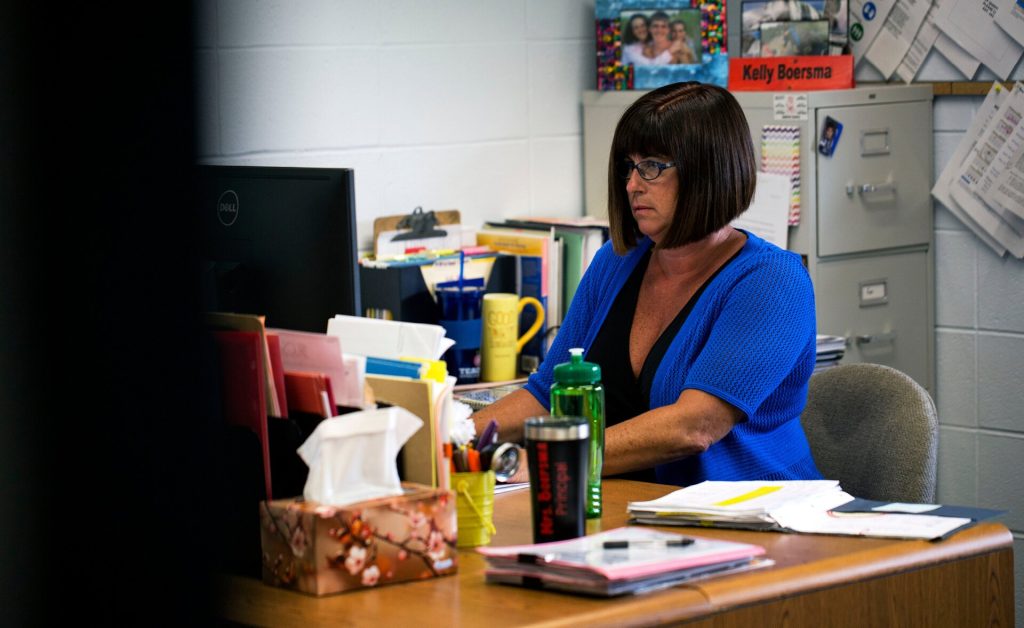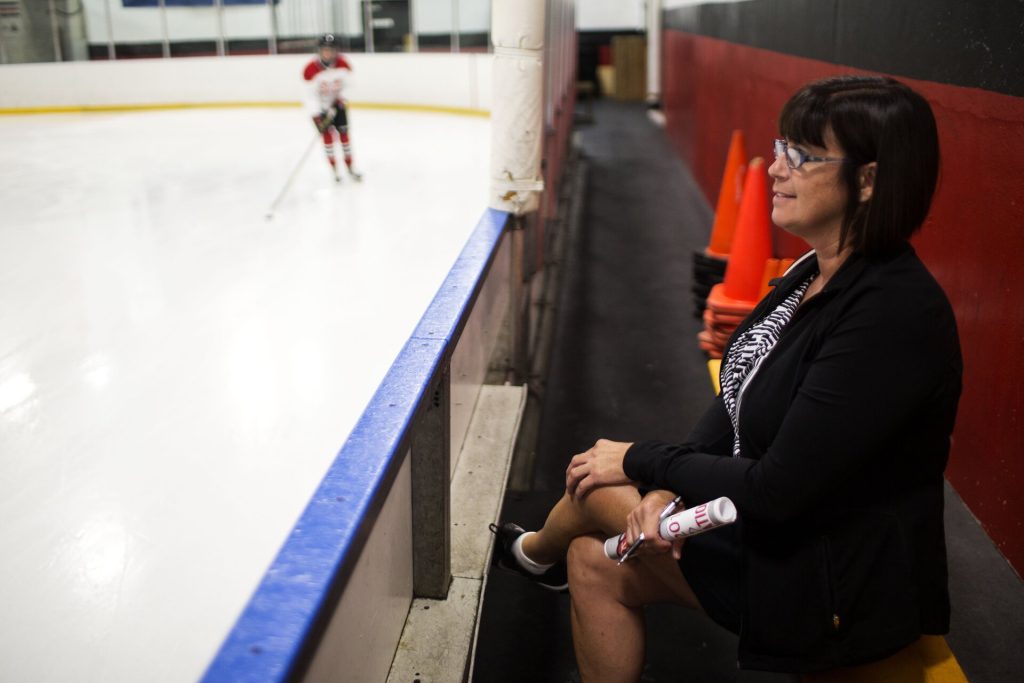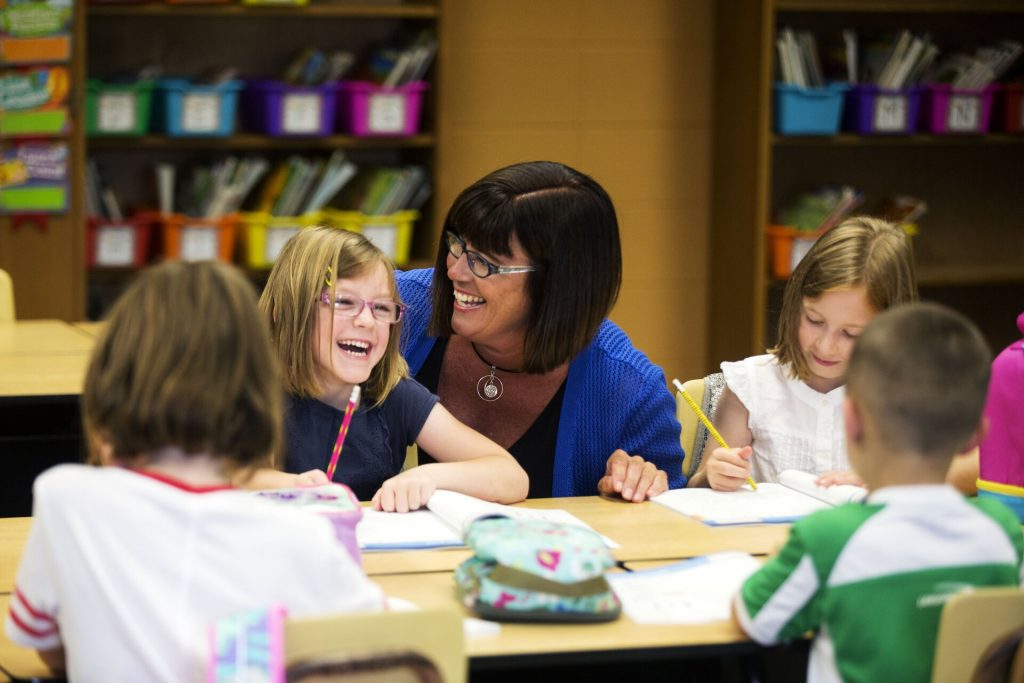
When Kelly Boersma, M.Ed. ’13, first applied to get her master’s degree through American College of Education, her goal was simple: keep her options open.
After two decades in the classroom, she was looking to expand her expertise and give herself a different pathway down the road.
A single mom of three, Kelly chose ACE for the flexibility. At the time, the Dyer, Indiana resident was traveling an hour and a half five days a week, transporting her son, Evan, back and forth to dance practice in Valparaiso. While Evan practiced grand jetés in the studio, Kelly hunkered down to complete assignments on a couch upstairs. But as much time as the M.Ed. in Educational Leadership grad spent in dance studios supporting Evan — and, later, her daughter, Briley — she also spent a great deal of time freezing in hockey rinks in support of her youngest child, EJ.

To say that being able to complete her coursework from anywhere and on her own time made a difference would be an understatement. For Kelly, it made earning an advanced degree possible.
These days, Kelly leads more than 600 students as principal of Frank H. Hammond Elementary School. Evan went straight from high school to the Joffrey Ballet in Chicago. Briley continues to perfect her craft at the Chicago Academy for the Arts, and Ethan is now hitting the ice for the Munster High School Mustang Hockey Club.
American College of Education: Looking back, it seems like you were able to tailor your program around your life, unlike the traditional model where students have to tailor their life around their education.
Kelly Boersma (KB): Agreed, but because of ACE. It was the convenience. You know, for 14 years, I’ve been a single mom. How do you balance three kids and all their events on top of keeping academics high and trying to keep a “normal” home life? How do you fit in education on top of that? That’s hard. But thanks to ACE, it happened.
ACE: Many programs lean heavily on theory, making it hard to see how what you’re learning applies to education today. What was your experience with ACE?
KB: I felt like ACE understood the importance of the real world of teaching and of administration. Your requirement that I had to work with someone that directly supervised me was appealing to me. I also appreciated that the internship component was… project-based, meaning, “Here’s the requirement. Now, you see how that fits and make it meaningful and relevant to what’s happening in your building.” That allowed me to be a part of the school improvement team, master scheduling, the RTI [Response to Intervention] process and special education. My projects were very relevant to what was happening in my K-4 building at the time.
ACE: How would you describe your experience in the ACE “classroom”?
KB: It’s different, because you don’t have that daily feedback from an instructor. There were times where I was like, “OK, I’m just going to wing this and see if this is right or not.” That was hard, but one of the things I learned to appreciate throughout the program was that the instruction in every single course I took was calculated and quality. And every course is designed exactly the same way, which really helped with expectations and planning, and mapping out the course for a busy schedule. The content changed, the instructor changed, but the expectations every week did not change.
One thing I will tell you that frustrated me at first is, you know, you open the coursework and it’s like, “OK, here are the 52 articles you have to read for this course, so download them and read them and highlight them.” I felt like I was killing trees! I was like, “Why isn’t there just a textbook?” But again, what I quickly learned is that a textbook is published in whatever year and cannot evolve. When you’re using current research and current articles, you are constantly and continually updating information in your system. So, is it more meaningful and relevant? Absolutely.
ACE: Being on that cutting-edge is also crucial when you’re talking job opportunities. How did your program help you in that respect?
KB: As I was finishing the program, an opportunity to be a dean of students in my own building became available, and because of my degree, I was eligible. So I left the classroom on a positive note to be a dean of students, which is very similar to an assistant principal position at the elementary level. I did that for about four years and that led me to this position where I am now, which is in a different district but still in Indiana.

ACE: I’d imagine the expectations for educators are very different from the expectations for senior-level administration. In what ways did your education help bridge the gap?
KB: I will say that it’s very nice to walk into a veteran staff and be able to say, “I’ve been a teacher for 20 years. I know what you’re talking about. I hear you. I’ve been in your shoes for a long time before stepping into this,” and that’s not true of everybody. ACE built upon that.
Not only was I exposed to great research-based information, but I got this amazing opportunity to shadow and work with my principal, and not only gain an understanding of what the position was going to be [like], but the real-life impact of what life was going to be like. I’m in a new district — new policies, new procedures, new school board, a new staff to work with, I didn’t really know anybody here — but the transition was easy because of the prior experiences I had.
From M.Ed. in Educational Leadership to Ed.D. in Leadership, American College of Education offers programs that will prepare you for leadership roles in a variety of fields. Find the right one for you by browsing all our leadership degrees.
